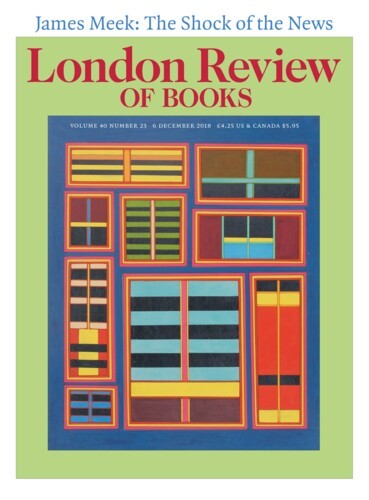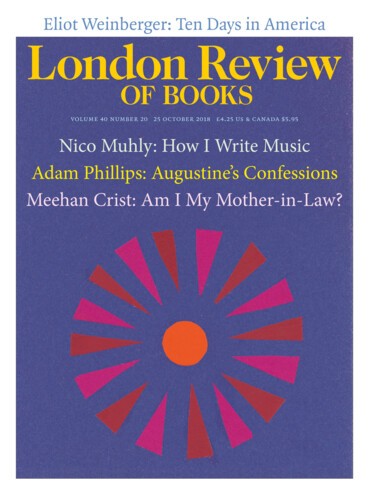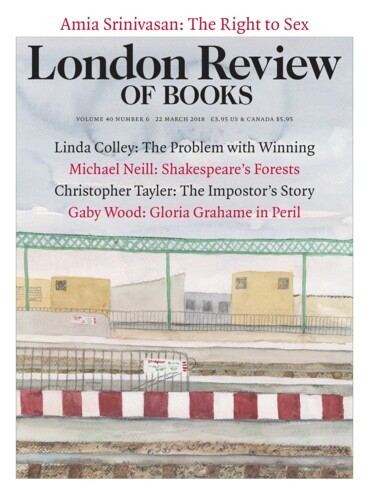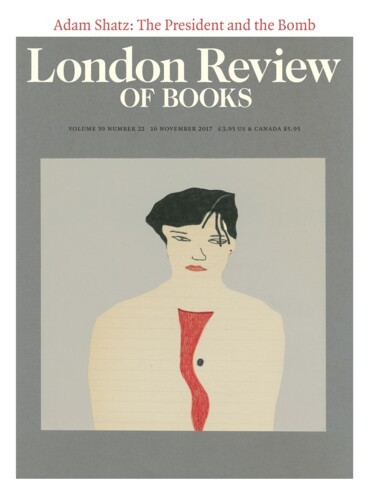On the one hand, it’s clearly part of Anna Burns’s project in Milkman to redescribe the Troubles without using such terms as ‘the Troubles’, ‘Britain’ and ‘Ireland’, ‘Protestant’ and ‘Catholic’, ‘RUC’ and ‘IRA’. On the other, the narrator’s mad, first-principles language, with its abundance of phrases in inverted commas and sudden changes of register, is also used to describe the inner world of a young woman with no idea whom to tell, and no templates for what she might say, when she’s stalked and groomed by a powerful older man. The public-political and the personal-political aren’t easily disentangled, and there’s no reason that they should be. But the plot complicates the reader’s – and the narrator’s – sense of the way they interact.
As a reader you feel you’ve earned Milkman’s more optimistic resolution, and that Anna Burns, with her wild sentences and her immense writerly discipline, has too.





